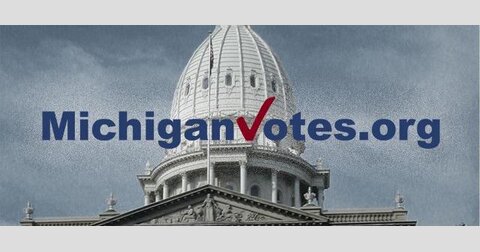Draconian Traffic Fee Law Moving Toward The Chopping Block
Bill would phase out 'driver responsibility fees'
A government money grab that's been operating under the guise of public safety might soon be ended. Legislation to scrap Michigan's "driver responsibility fees" has overwhelming support in the Legislature.
In 2003, state lawmakers passed a bill that assessed "driver responsibility fees" in an effort to bring in additional revenue. The move was thinly veiled as a measure to ensure drivers were operating vehicles safely. However, the fees often go beyond simply assigning stiffer penalties for unsafe driving practices. In many instances they pile on costs that individuals don't have the ability to pay. What's more, under certain circumstances they also can include hefty fines for violations such as not being able to produce proof of insurance.
The fees bring in $123.2 million to the state annually, according to a Senate Fiscal Agency analysis.
Another criticism of the law is that it took away the ability of local judges to use their discretion when handling individual cases. Lawmakers in Lansing say they regularly hear horror stories from their constituents about the unintended consequences of the law.
Although the fees have been widely recognized as bad public policy for a number of years, they have survived for more than a decade. House Appropriations Committee Chair Rep. Joe Haveman, R-Holland, said this may be a classic example of governmental reluctance to shut off any established revenue stream.
"Everybody agrees this has been a bad way to do it but we've become hooked on the revenue it brings in," he said. "If I had my choice I'd lop off about $80 million from the budget to begin ending it right away. However, if we really want to get rid of this a phase-out is more realistic."
Rep. Haveman is the sponsor of House Bill 5414, which would do just that over a period of roughly three years. Phasing out the driver responsibility fees would allow the state budget planners to more easily adjust to the diminishing revenue, he said. Under the bill, as of Oct. 1, 2017, the state would stop assessing the fees going forward. The bill was introduced on March 18 and promptly garnered 107 co-sponsors in the House.
The Senate Fiscal Agency analysis also observed that in 2012, only 56 percent of the fees assessed were collected. That statistic could be taken as evidence of the degree to which the fees have caused financial hardship.
"Politicians show what they really care about not in what they say, but in how they vote," said Jack McHugh, senior legislative analyst with the Mackinac Center for Public Policy. "In 2003, 67 of them in the House, and 32 in the Senate, showed they cared more about keeping the government whole than keeping lower income drivers whole. It's nice that 107 of them now say they want to revisit those priorities, but, watch what they do, not what they say."
The only three House members who are not co-sponsors of the legislation are House Speaker Jase Bolger, R-Marshall; House Democratic Leader Tim Greimel, D-Auburn Hills; and House Majority Floor Leader Jim Stamas, R-Midland. All three are in leadership positions and have self-imposed rules against co-sponsoring bills.
Rep. Haveman now is working with his colleagues in the Senate to try to move the bill forward.
"I am working with Sen. Bruce Caswell, R-Hillsdale, who has his own legislation on this issue," Rep. Haveman said. "I plan to sit down with Sen. Caswell and Senate Appropriations Committee Chair Roger Kahn, R-Saginaw, and work this out. I want to get this done. I'm hoping to move this before autumn."
Michigan Capitol Confidential is the news source produced by the Mackinac Center for Public Policy. Michigan Capitol Confidential reports with a free-market news perspective.


 Dearborn school contract appears to ignore Supreme Court ruling
Dearborn school contract appears to ignore Supreme Court ruling
 Security guards deauthorize union; payments now optional
Security guards deauthorize union; payments now optional
 Clean fuel proposal would drive up gas prices 34 cents per gallon by 2035
Clean fuel proposal would drive up gas prices 34 cents per gallon by 2035